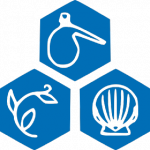
Fostering research excellence
in EU Outermost Regions


Fostering research excellence
in EU Outermost Regions

La Reunion
Research centers or research group
LCSNSA’s main topic explores tropical biodiversity in the south-western
Indian Ocean and agri-industrial systems by studying their properties as part
of sustainable, innovative chemistry, linked to the tropical bioeconomy. Its
main objectives are :
(1) of pharmacology and cosmetics,
(2) colourings, pigments and flavouring,
(3)the environment and bioenergy, and
(4) chemical ecology.
Areas of expertise
TASCMAR
Tools And Strategies to access to original bioactive compounds from
Cultivation of MARine invertebrates and associated symbionts.
Funding : Europe H2020
15/04/2014 to 15/04/2019
PATZERBAZ
Fostering the use of indigenous and exotic flora in Reunion to identify plant molecules with high added value in the cosmetics, pharmaceutics and agrochemicals sectors.
Funding : European Union – ERDF Reunion Regional Council
01/10/2018 to 30/09/2021
BIOPIPER
Sustainable production of natural biocide extracts from two Piperaceae species in Reunion.
Funding : CASDAR
01/01/2015 to 30/06/2018
COLORMAR
Natural colouring molecules from fungal marine biodiversity in Reunion :
Optimisation of production and extraction of pigments produced by
biotechnology.
Funding : Reunion Regional Council
20/05/2015 to 31/12/2018
BIOPROCAN
Food and non-food bioproducts derived from sugar cane.
Funding : Reunion Regional Council
20/05/2015 to 31/12/2018
GDR 3658 MEDIATEC : CHEMICAL MEDIATION IN THE
ENVIRONMENT – CHEMICAL ECOLOGY / NATIONAL
This research group (GDR) seeks to promote chemical ecology in
France, to foster a scientific community of biologists, ecologists
and chemists with an interest in marine and continental
environments, microorganisms, plants, invertebrates, insects and
mammals. It also addresses current scientific challenges through
global and transversal “omic”-type approaches, from genomics to
environmental metabolomics.
QUALIREG / REGIONAL AND INTERNATIONAL
Regional food industry cooperation network (50 partners) to
improve product quality and promote co-development in the
Indian Ocean area. Participation in continuing professional
education.
NORTH CAMPUS
1 laboratory grinder
1 lyophilizer
Medium-Pressure Liquid Chromatography/UV (CLMP-UV)
1 High-Performance Liquid Chromatography/UV/ Fluorometer/Corona (HPLC),
1 Semi-preparative and preparative High Performance Liquid
Chromatography coupled to DAD / Corona detectors
1 Gas chromatography used with a flame ionisation detector (GC-FID),
1 ultra high performance liquid chromatography coupled with
mass spectrometry gas chromatography used with TCD/FID/
katharometerdetectors, gas chromatography used with a mass
spectrometer (GC-MS)
Extractor ASE 300
Freeze-drying machine
Infrared spectroscopy
Spectrofluorometer linked to a microplate reader / Ultraviolet Spectrophotometry (UV)
DryDist microwave oven
Ultrasound tanks and probes
Laminar flow extractor hood
Bioreactors
Colorimeter spectometer
Sphygmomanometer, Micro-Osmometer, Texturometer,
Viscometer
CO2 tank, Incubator
Molecular modelling station and software (Gaussian, etc.)
SOUTH CAMPUS
Pilot platform for the production of “Raceway” microalgae
1 hydrogen generator
INFORS orbital incubation shaker
2 Incubators with thermostats
2 bioreactors for anaerobic digestion with CH4 mass flow sensor
2 GM300 micro mills and grinder
Orbital shaker with thermostat
2 methane potential analysis tools (AMPTS II system)
chiller
freezer (-18°C)
LCSNSA’s main topic explores tropical biodiversity in the south-western
Indian Ocean and agri-industrial systems by studying their properties as part
of sustainable, innovative chemistry, linked to the tropical bioeconomy. Its
main objectives are :
(1) of pharmacology and cosmetics,
(2) colourings, pigments and flavouring,
(3)the environment and bioenergy, and
(4) chemical ecology.
Areas of expertise
TASCMAR
Tools And Strategies to access to original bioactive compounds from
Cultivation of MARine invertebrates and associated symbionts.
Funding : Europe H2020
15/04/2014 to 15/04/2019
PATZERBAZ
Fostering the use of indigenous and exotic flora in Reunion to identify plant molecules with high added value in the cosmetics, pharmaceutics and agrochemicals sectors.
Funding : European Union – ERDF Reunion Regional Council
01/10/2018 to 30/09/2021
BIOPIPER
Sustainable production of natural biocide extracts from two Piperaceae species in Reunion.
Funding : CASDAR
01/01/2015 to 30/06/2018
COLORMAR
Natural colouring molecules from fungal marine biodiversity in Reunion :
Optimisation of production and extraction of pigments produced by
biotechnology.
Funding : Reunion Regional Council
20/05/2015 to 31/12/2018
BIOPROCAN
Food and non-food bioproducts derived from sugar cane.
Funding : Reunion Regional Council
20/05/2015 to 31/12/2018
GDR 3658 MEDIATEC : CHEMICAL MEDIATION IN THE
ENVIRONMENT – CHEMICAL ECOLOGY / NATIONAL
This research group (GDR) seeks to promote chemical ecology in
France, to foster a scientific community of biologists, ecologists
and chemists with an interest in marine and continental
environments, microorganisms, plants, invertebrates, insects and
mammals. It also addresses current scientific challenges through
global and transversal “omic”-type approaches, from genomics to
environmental metabolomics.
QUALIREG / REGIONAL AND INTERNATIONAL
Regional food industry cooperation network (50 partners) to
improve product quality and promote co-development in the
Indian Ocean area. Participation in continuing professional
education.
NORTH CAMPUS
1 laboratory grinder
1 lyophilizer
Medium-Pressure Liquid Chromatography/UV (CLMP-UV)
1 High-Performance Liquid Chromatography/UV/ Fluorometer/Corona (HPLC),
1 Semi-preparative and preparative High Performance Liquid
Chromatography coupled to DAD / Corona detectors
1 Gas chromatography used with a flame ionisation detector (GC-FID),
1 ultra high performance liquid chromatography coupled with
mass spectrometry gas chromatography used with TCD/FID/
katharometerdetectors, gas chromatography used with a mass
spectrometer (GC-MS)
Extractor ASE 300
Freeze-drying machine
Infrared spectroscopy
Spectrofluorometer linked to a microplate reader / Ultraviolet Spectrophotometry (UV)
DryDist microwave oven
Ultrasound tanks and probes
Laminar flow extractor hood
Bioreactors
Colorimeter spectometer
Sphygmomanometer, Micro-Osmometer, Texturometer,
Viscometer
CO2 tank, Incubator
Molecular modelling station and software (Gaussian, etc.)
SOUTH CAMPUS
Pilot platform for the production of “Raceway” microalgae
1 hydrogen generator
INFORS orbital incubation shaker
2 Incubators with thermostats
2 bioreactors for anaerobic digestion with CH4 mass flow sensor
2 GM300 micro mills and grinder
Orbital shaker with thermostat
2 methane potential analysis tools (AMPTS II system)
chiller
freezer (-18°C)